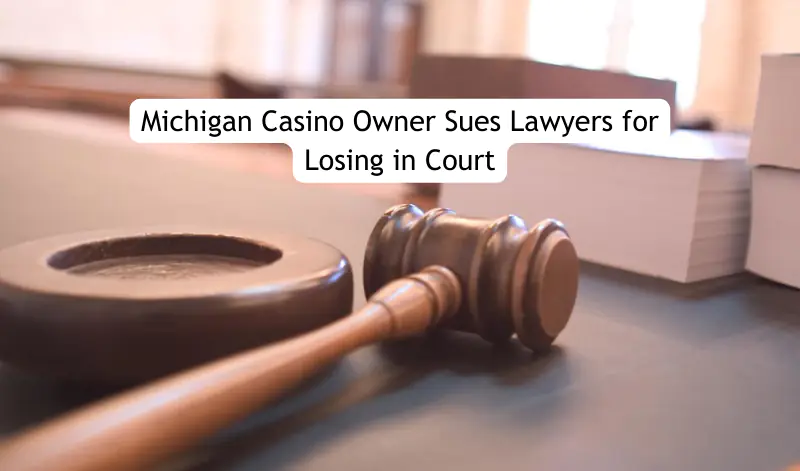Michigan Casino Owner Sues Lawyers for Losing in Court

The Kewadin Casinos Gaming Authority has officially filed a malpractice lawsuit against its former legal counsel, Patterson, Earnhart, Real Bird & Wilson LLP.
The lawsuit was filed for mishandling the casino’s legal dispute with former development partners JLLJ Development and Lansing Future Development II.
Represented by Daniel V. Barnett of Grewal Law PLLC and Lawrence J. Acker of Lawrence J. Acker, P.C., Kewadin seeks redress for the alleged negligence of its former legal advisors.
The lawsuit centres on the Patterson law firm’s tenure as Kewadin Casinos’ legal counsel from June 2020 to December 2022. The malpractice claim primarily focuses on the firm’s inadequate representation during the legal battles related to two casino development contracts.
The complaint against the Patterson law firm outlines various instances where their Colorado-based attorneys claimed familiarity with Michigan law but allegedly mishandled the case.
Specific points, such as failure to appear at an October 18, 2021 scheduling conference and failure to adhere to Michigan Court Rules, resulting in fines, sanctions and attorney fees, were all considered.
Earlier this year, Kewadin Casinos settled with JLLJ Development and Lansing Future Development II, amounting to $25 million. This agreement marked a significant reduction from the initial $88 million in damages ordered by Ingham County Judge Joyce Draganchuk.
While Judge Joyce Draganchuk has yet to issue a final judgment, her recent ruling entitles the investors to damages for breach of contract and fraudulent misrepresentation by Kewadin.
This judgment is anticipated to be appealed to the Michigan Court of Appeals. A representative for Kewadin and the Sault tribe declined to comment.
The Sault tribe’s efforts to secure approval from the US Department of the Interior to place the land for these off-reservation casinos into a trust faced obstacles, ultimately leading to the demise of both casino plans.
The Huron Township casino was slated to operate in a vacant 71,000-square-foot megachurch building near I-275, but it faced opposition from Detroit’s existing casinos and several Michigan tribes with their gaming establishments.
The Sault tribe is Michigan’s largest tribe by membership and currently operates five smaller Kewadin casinos in the Upper Peninsula. This is the same tribe that formerly owned Detroit’s Greektown Casino before losing it to bankruptcy in 2008.
The investors claimed in their lawsuit that the tribe provided false assurances that it could quickly secure the necessary lands for the casinos and have them placed into trust.
Despite previous support from the US District Court for the District of Columbia, the Sault tribe’s request for the Huron Township site was ultimately declined by the Department of the Interior.
The tribe then sued the Department of Interior, but the District of Columbia Court of Appeals reversed the ruling last year.
In response to the investors’ claims, Kewadin argued that it should not be held liable for damages due to sovereign immunity and non-recourse provisions in the development contracts.
However, the judge’s ruling stated that the development contracts contained clear waivers of sovereign immunity and that the non-recourse provisions did not apply to the investors’ claim for damages related to fraudulent misrepresentation.
The investor groups pursuing legal action against Kewadin are JLLJ Development, which was financing the Huron Township casino, consisting of 38 members, and Lansing Future Development II, with 18 members.
- Other news categories:
- SlotsUp's news





